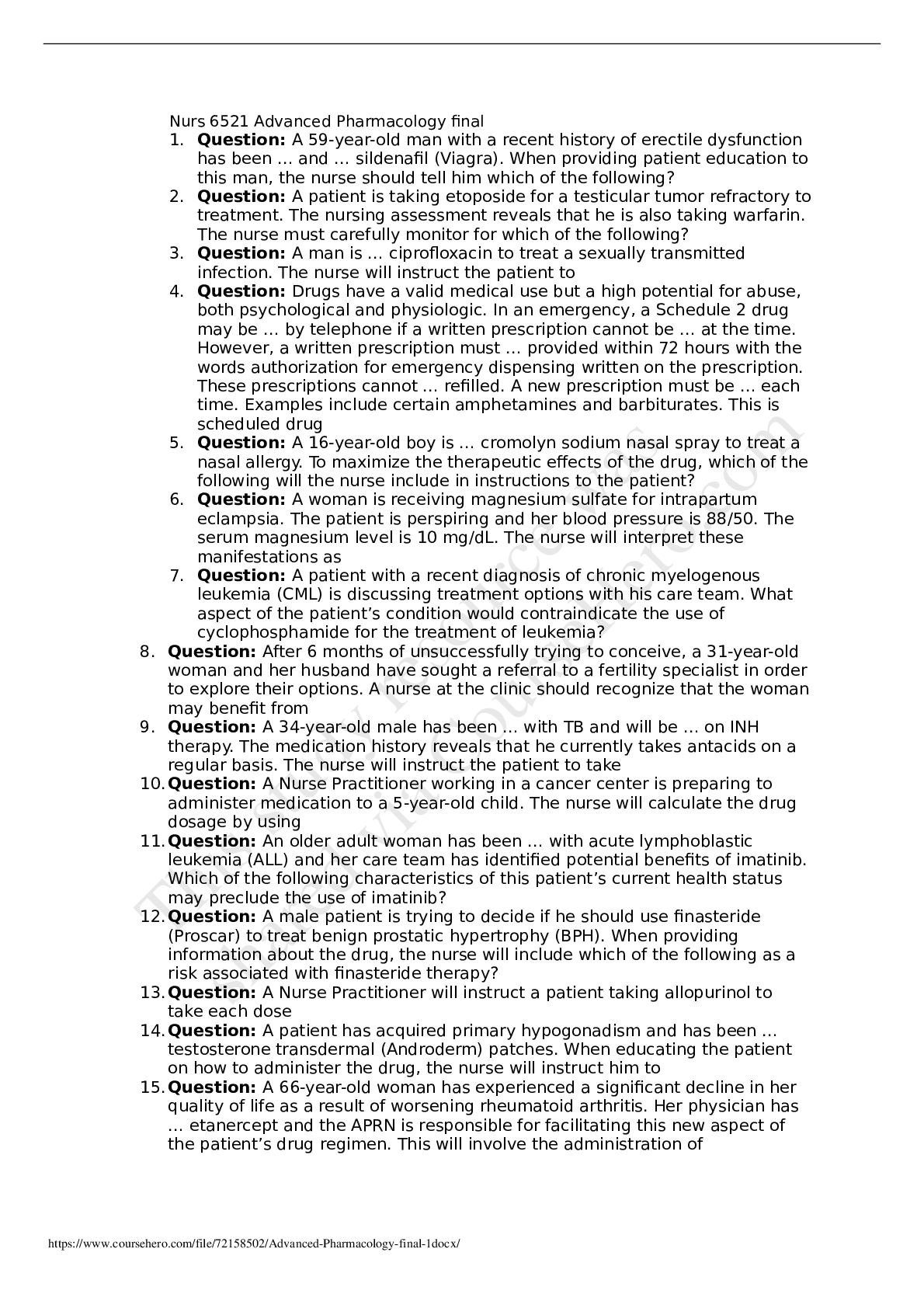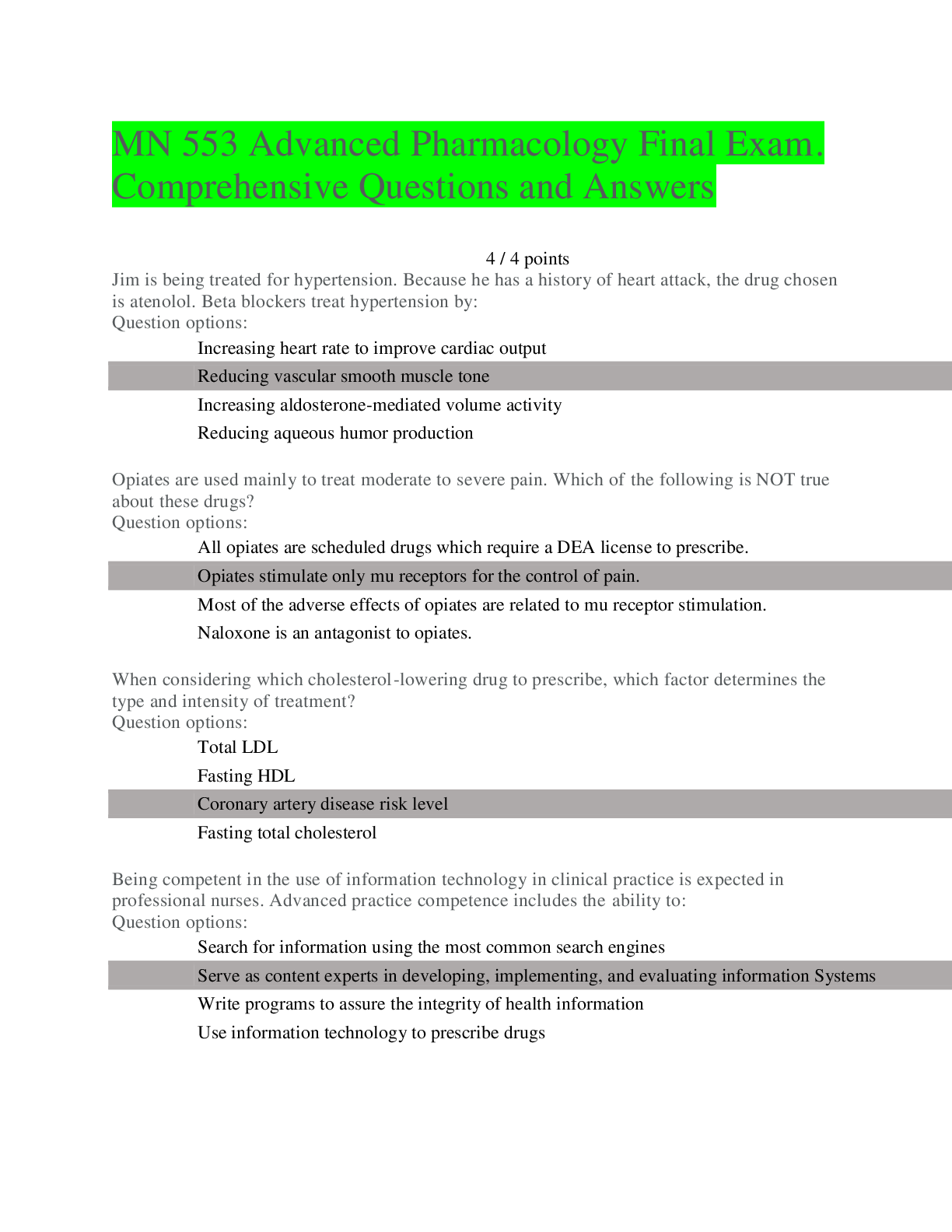Health Care > QUESTIONS & ANSWERS > 6521 Advanced Pharmacology Final 2022 (All)
6521 Advanced Pharmacology Final 2022
Document Content and Description Below
1. A nurse is caring for an infant after a surgical procedure. After ensuring that the ordered dose is appropriate for the infant's age and weight, the nurse administers a narcotic analgesic intrave... nously. When assessing the infant 15 minutes later, the nurse notes respirations of 22 breaths/minute and a heart rate of 110 beats/minute. The infant is asleep in the parent's arms and does not awaken when vital signs are assessed. The nurse understands that these findings are the result of: - immaturity of the blood-brain barrier in the infant. 2. A child will receive 750 mg of an antibiotic for 10 days. The child attends day care. The drug may be dosed in several ways and is available in two concentrations. Which dosing regimen will the nurse discuss with the child's provider? - 500 mg/5 mL to 375 mg PO twice daily 3. Parents ask the nurse why an over-the-counter cough suppressant with sedative side effects is not recommended for infants. Which response by the nurse is correct? - "Infants are more susceptible to central nervous system effects than are adults." 4. A nurse caring for a 5-year-old child notes that the child has discoloration of several teeth. When taking a medication history, the nurse will ask about which group of medications? - Tetracyclines 5. An infant has allergies and often develops a pruritic rash when exposed to allergens. The infant's parents ask the nurse about using a topical antihistamine. What should the nurse tell them? - Applying an antihistamine to the skin can cause toxicity in this age group. 6. An infant is receiving a medication that has a narrow therapeutic range. The nurse reviews the medication information and learns that the drug is excreted by the kidneys. When giving the medication, the nurse will assess the infant for: - signs of drug toxicity. 7. A pediatric nurse is teaching nursing students to calculate medication doses for children using a formula based on body surface area. Which statement by a nursing student indicates understanding of the teaching? - "This formula helps approximate the first dose; other doses should be based on clinical observations." 8. A pediatric nurse is teaching nursing students about medication administration in children. Which statement by a student indicates an understanding of the teaching? - "Drugs effective in adults may not work in children, even if the dose is proportional for weight and size." 9. A nurse is teaching nursing students about pediatric medication administration. What will the nurse include when discussing pediatric drug research? - Studies showed a significant percentage of unanticipated and potentially lethal side effects in children. 10.A prescriber has ordered medication for a newborn. The medication is eliminated primarily by hepatic metabolism. The nurse expects the prescriber to: - order a dose that is lower than an adult dose. 11.The parents of a child with asthma ask the nurse why their child can not use oral corticosteroids more often, because they are so effective. The nurse will offer which information that is true for children? - Chronic steroid use can inhibit growth. 12.A patient with schizophrenia receives a dose of risperidone [Risperdal Consta] IM. The nurse teaching this patient about this medication will make which statement? - "You will need to take an oral antipsychotic drug for 3 weeks." 13.A patient with schizophrenia shows suicidal behaviors, and the provider orders clozapine [Clozaril]. The nurse teaches the family about the medication and its side effects. Which statement by a family member indicates a need for further teaching about this drug? - "If the ANC is less than 3000, the drug will be discontinued permanently." 14.A patient in whom drug therapy has failed several times in the past is readmitted to a hospital to begin therapy for schizophrenia. What will the nurse do to help improve adherence? - Teach the patient about drug side effects and how to manage them. 15.A nurse provides teaching for a patient about to begin taking an FGA drug for schizophrenia. Which statement by the patient indicates a need for further teaching about side effects of these drugs? - "Dry mouth and constipation are uncommon with this medication." 16.A patient taking an FGA medication develops severe parkinsonism and is treated with amantadine [Symmetrel]. The amantadine is withdrawn 2 months later, and the parkinsonism returns. The nurse will expect the provider to: - try a secondgeneration antipsychotic (SGA). 17.What are negative symptoms of schizophrenia? Select all that apply. - Poor judgment 18.Poor self-care 19.Poverty of speech 20.A patient is taking an FGA for schizophrenia. The nurse notes that the patient has trouble speaking and chewing and observes slow, wormlike-movements of the patient's tongue. The nurse recognizes which adverse effect in this patient? - Tardive dyskinesia [Show More]
Last updated: 1 year ago
Preview 1 out of 29 pages
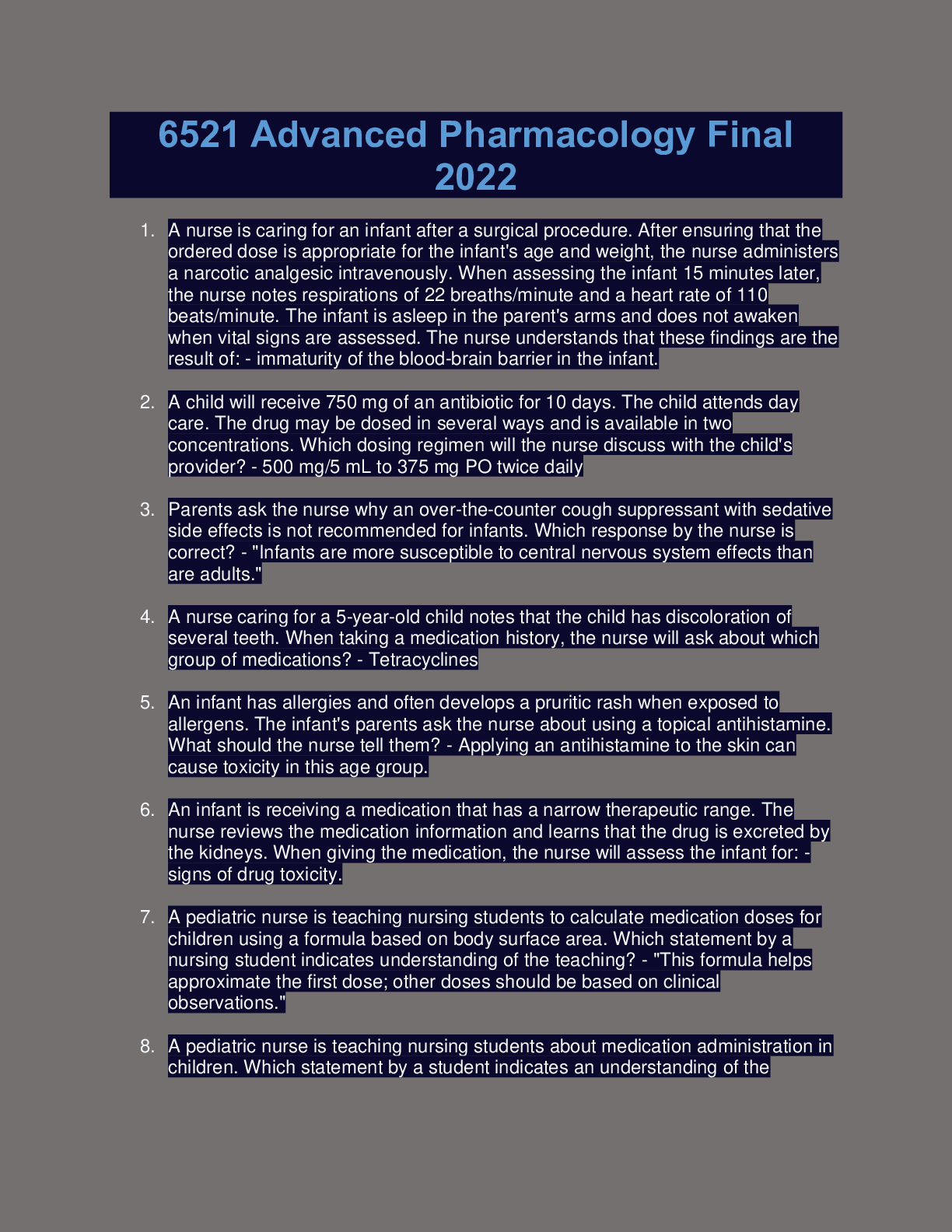
Reviews( 0 )
Document information
Connected school, study & course
About the document
Uploaded On
Jul 13, 2022
Number of pages
29
Written in
Additional information
This document has been written for:
Uploaded
Jul 13, 2022
Downloads
0
Views
70

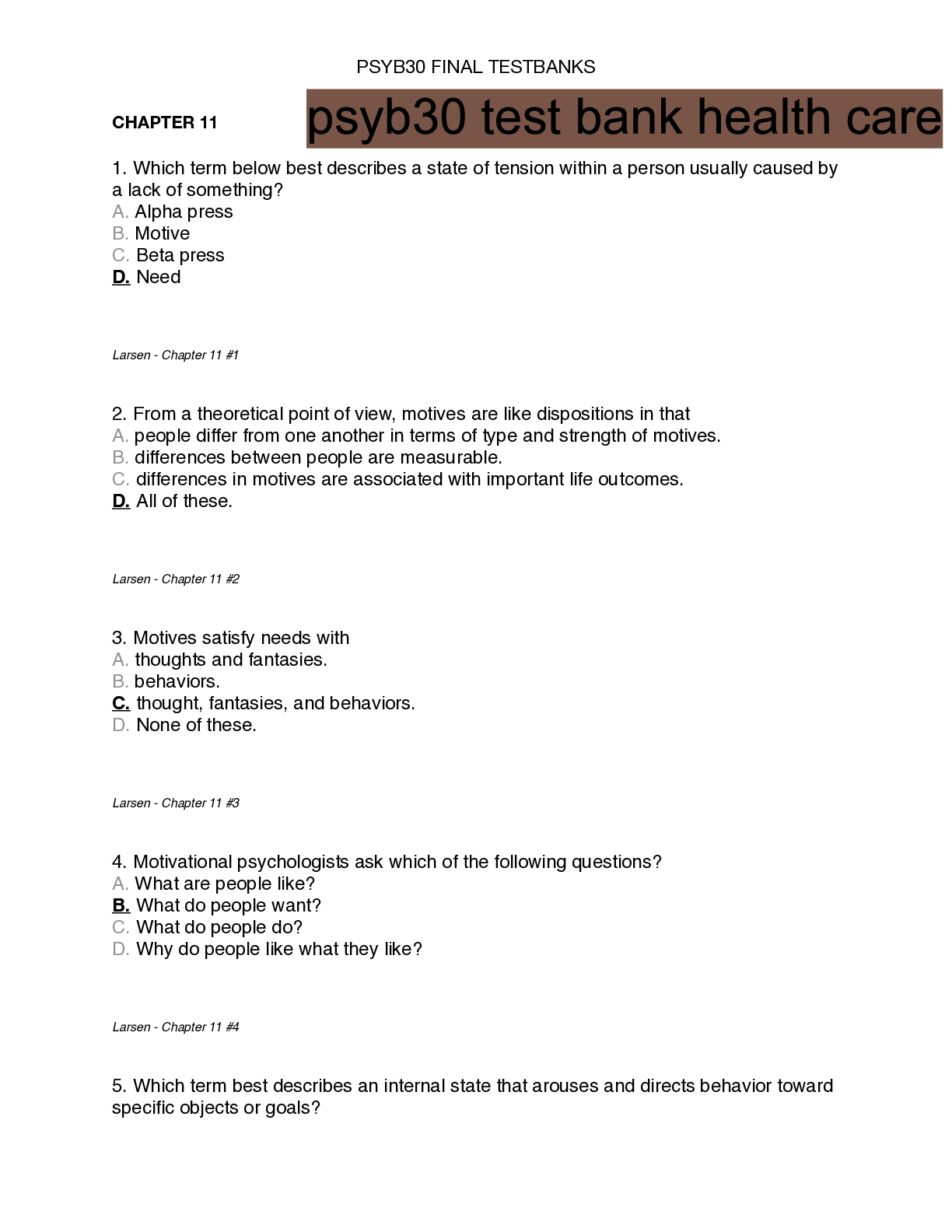
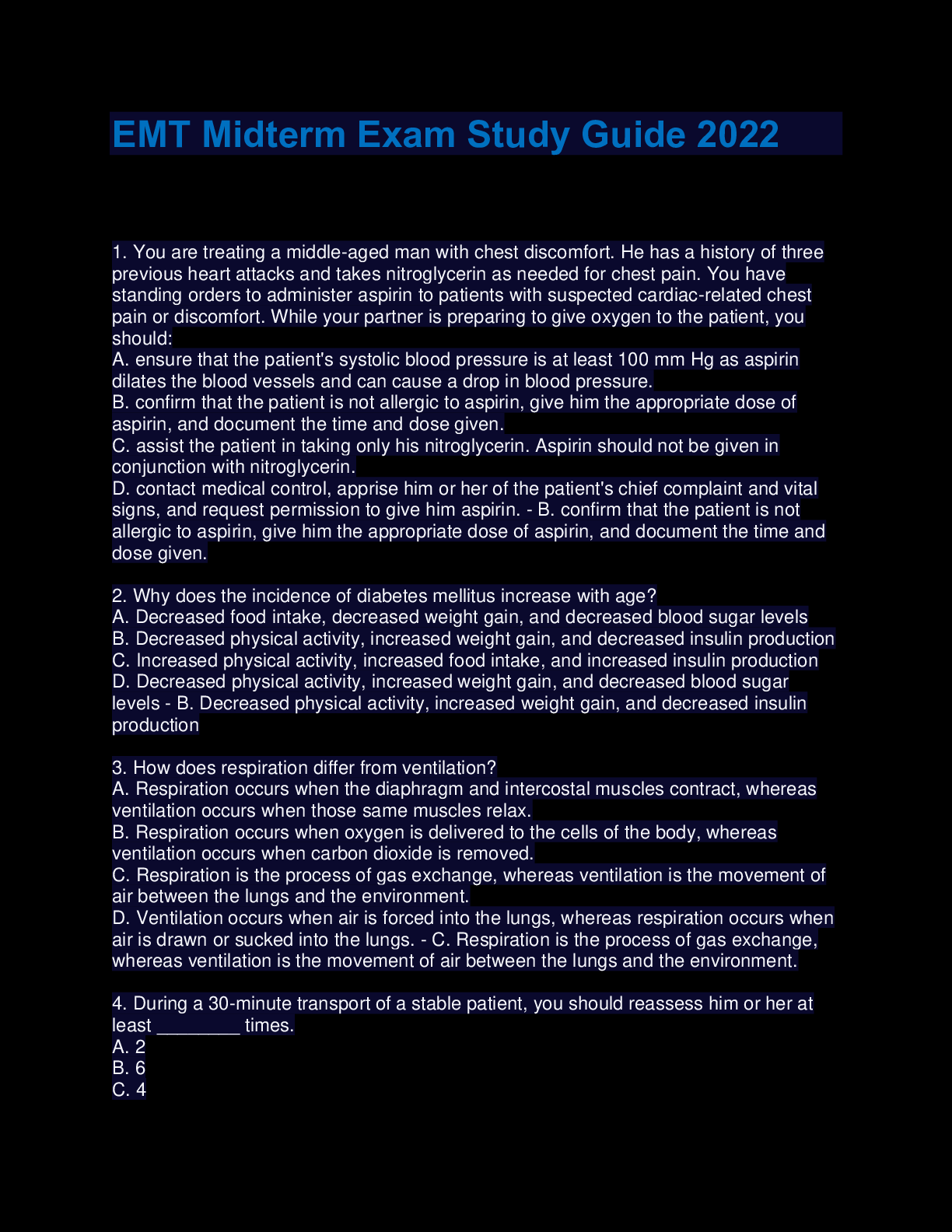
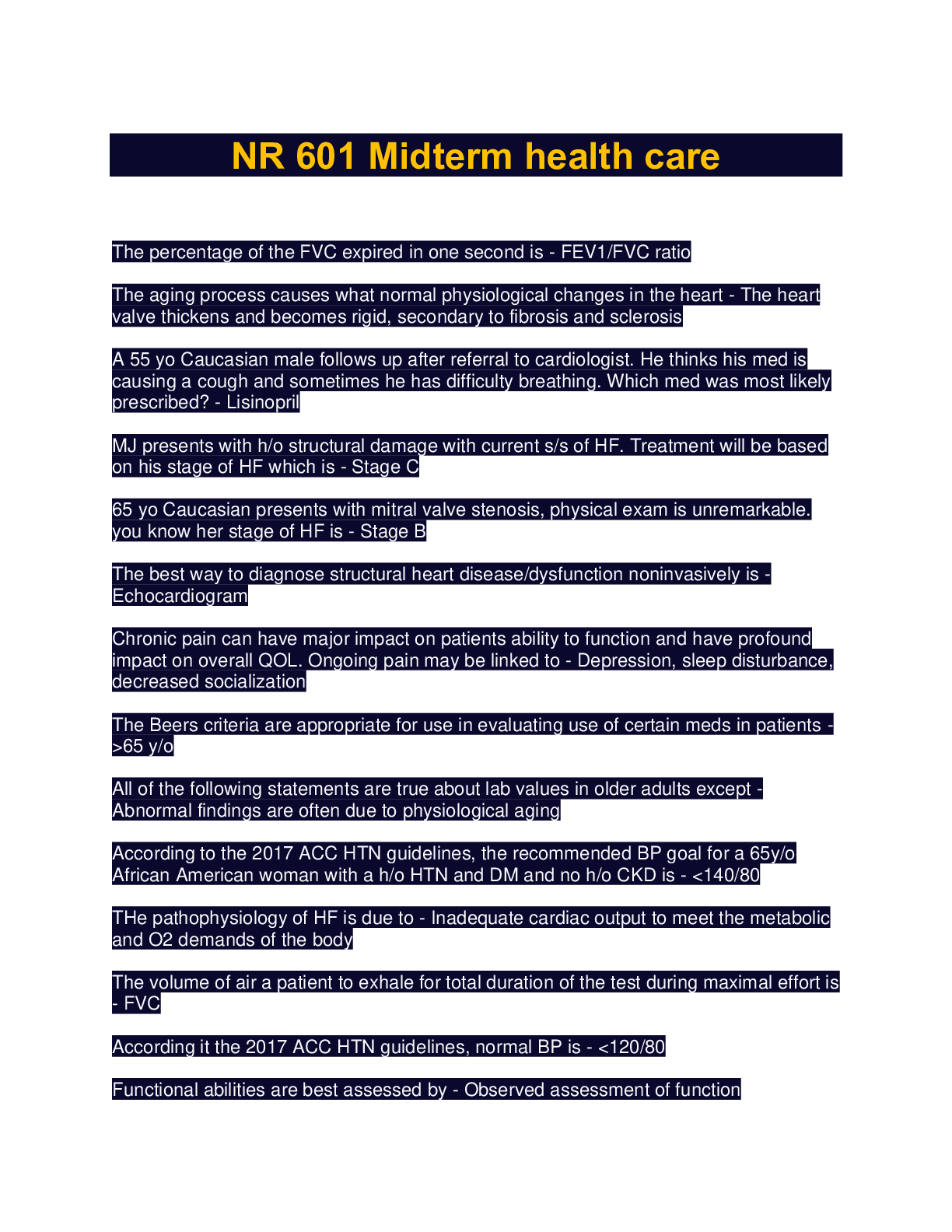

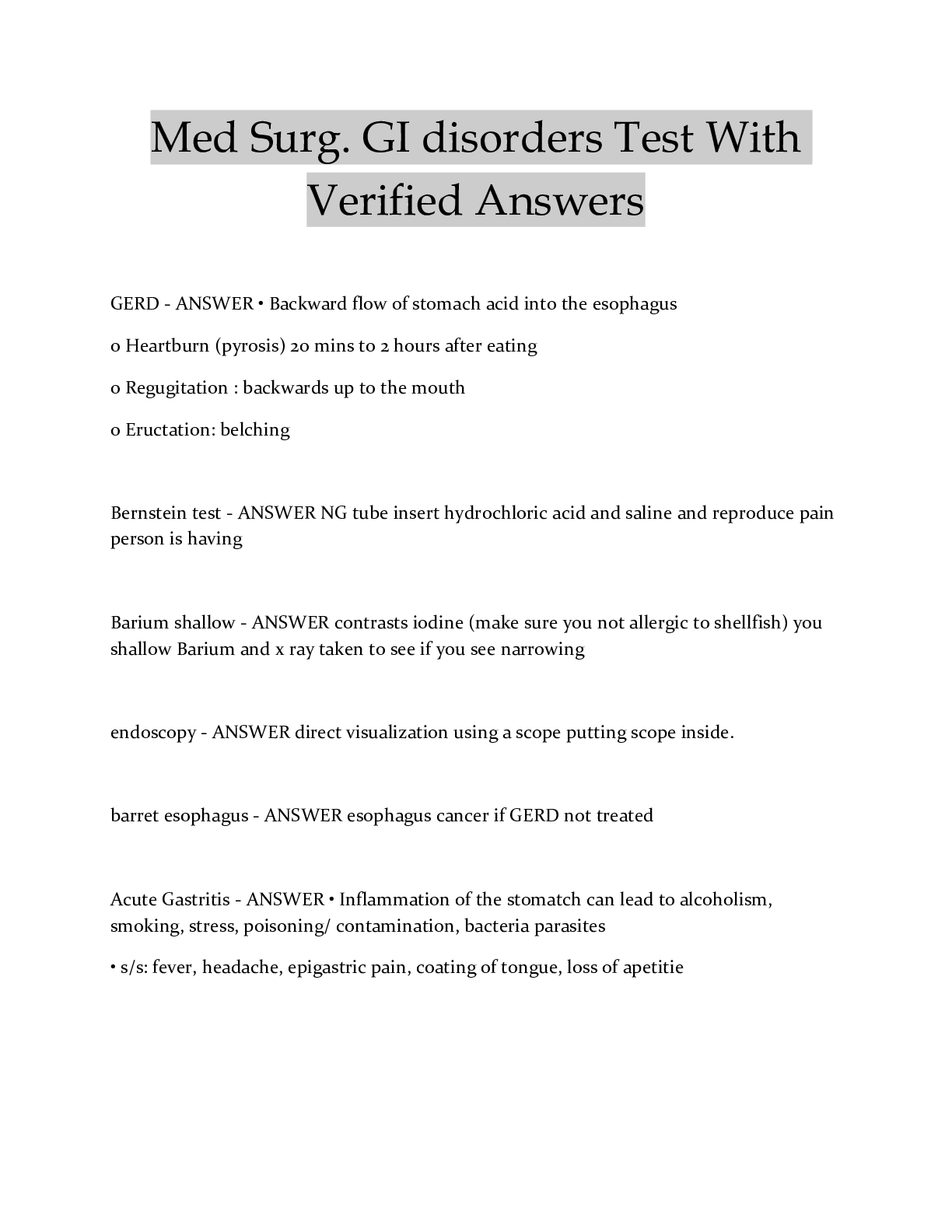


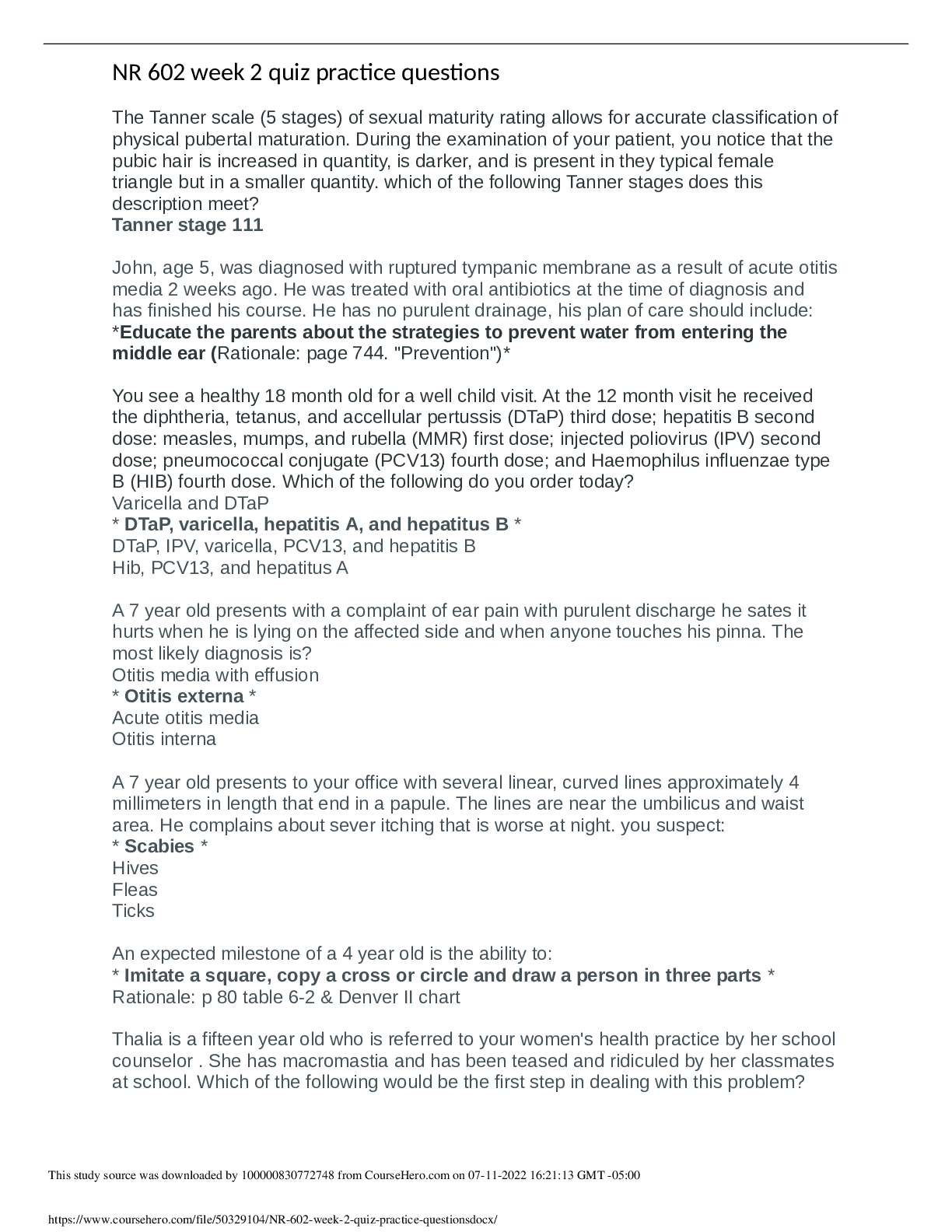
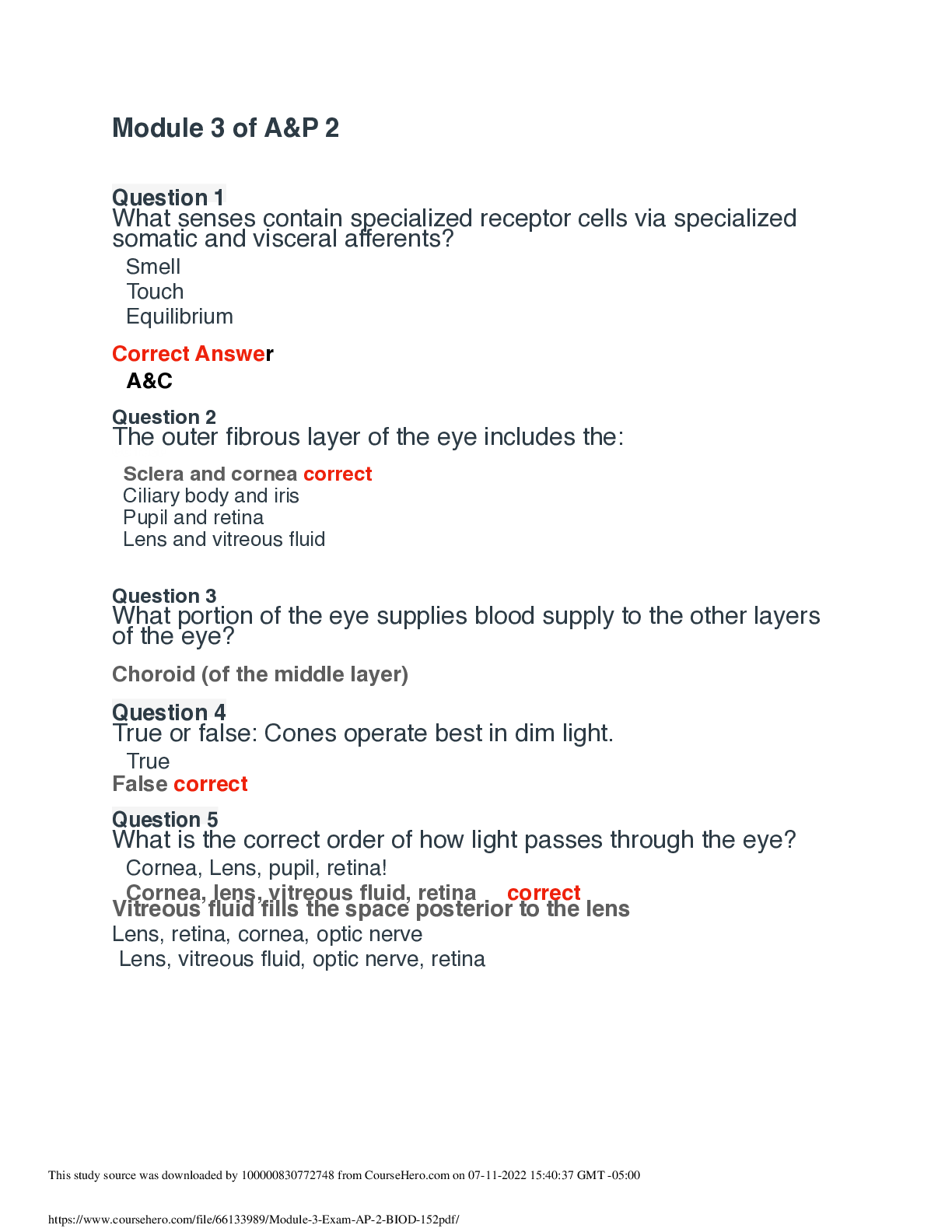
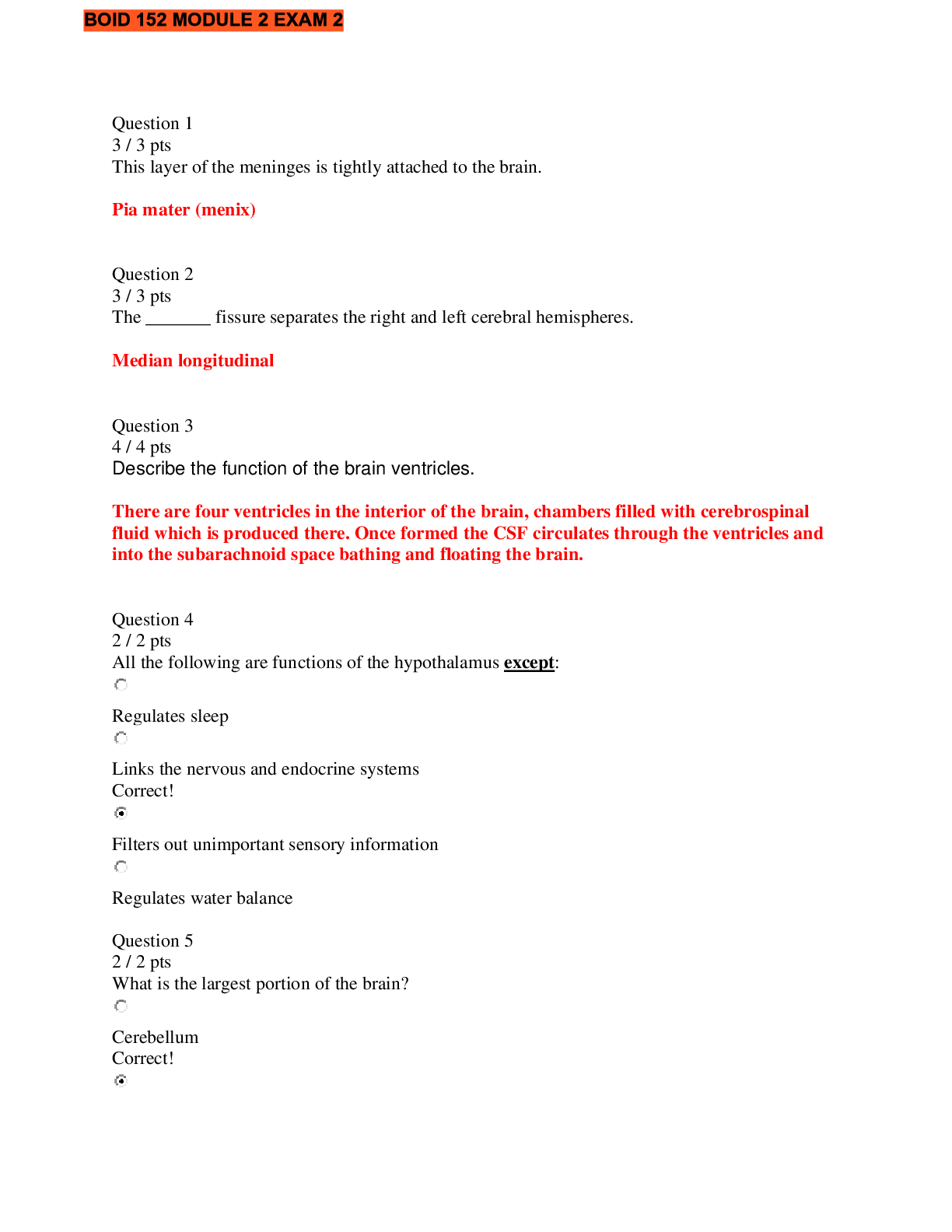

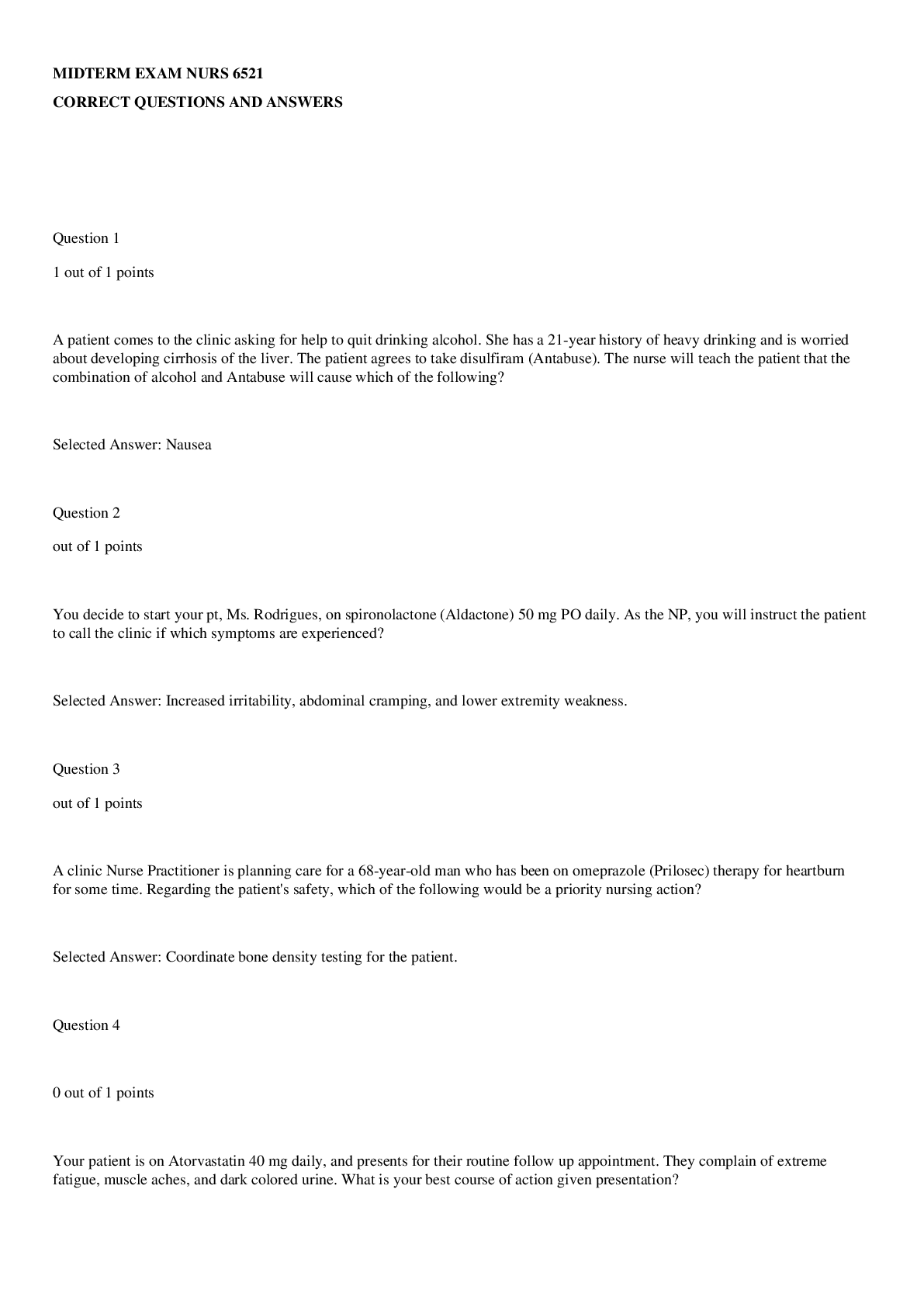
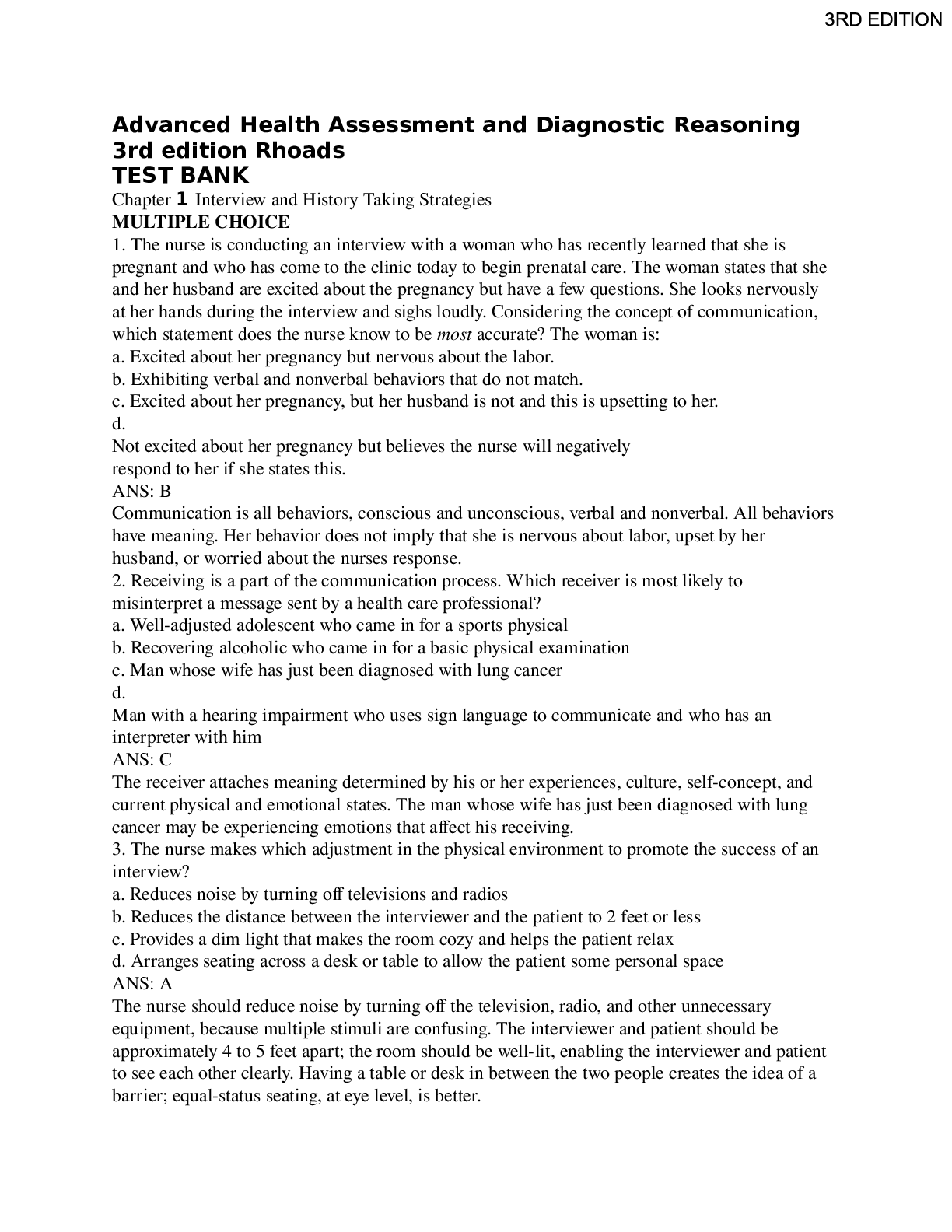
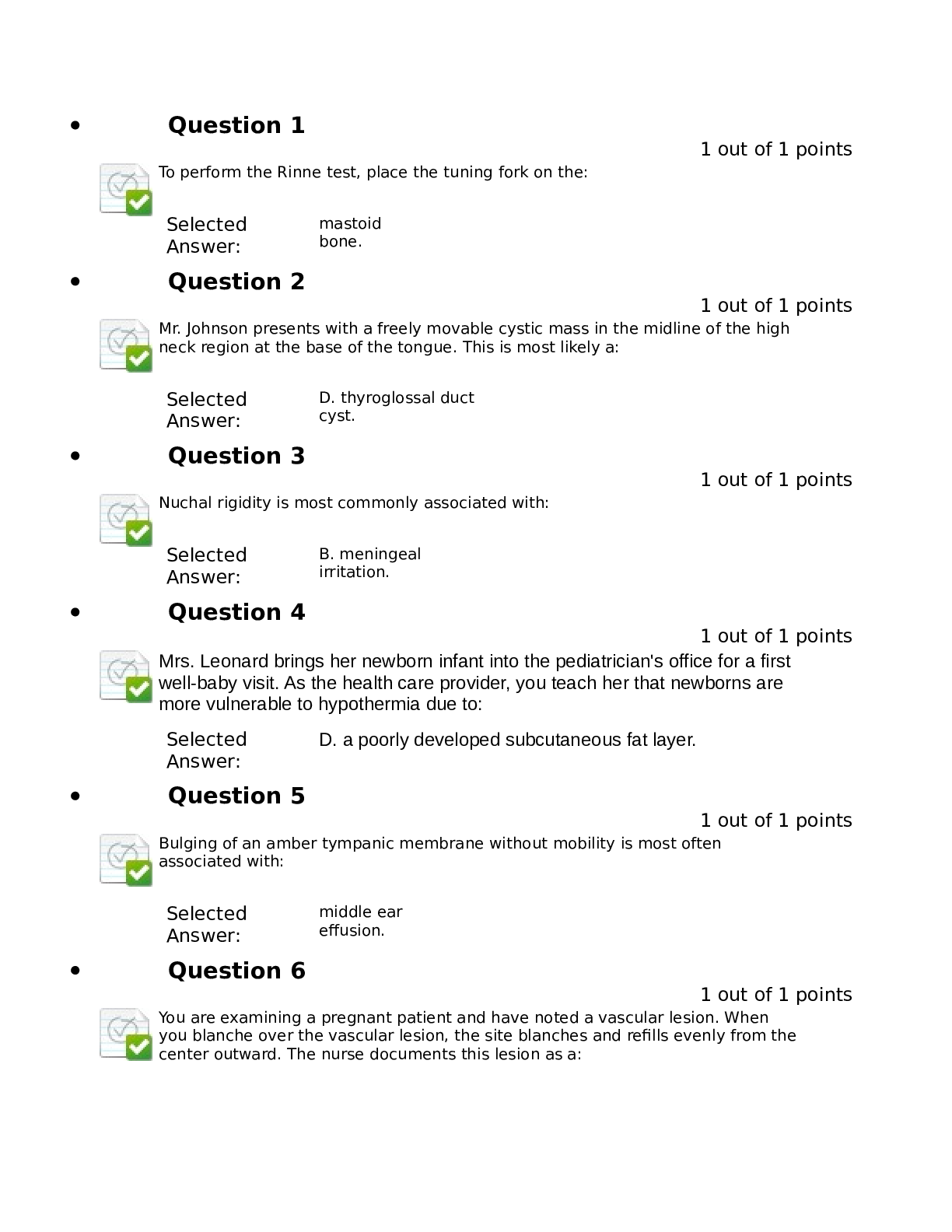
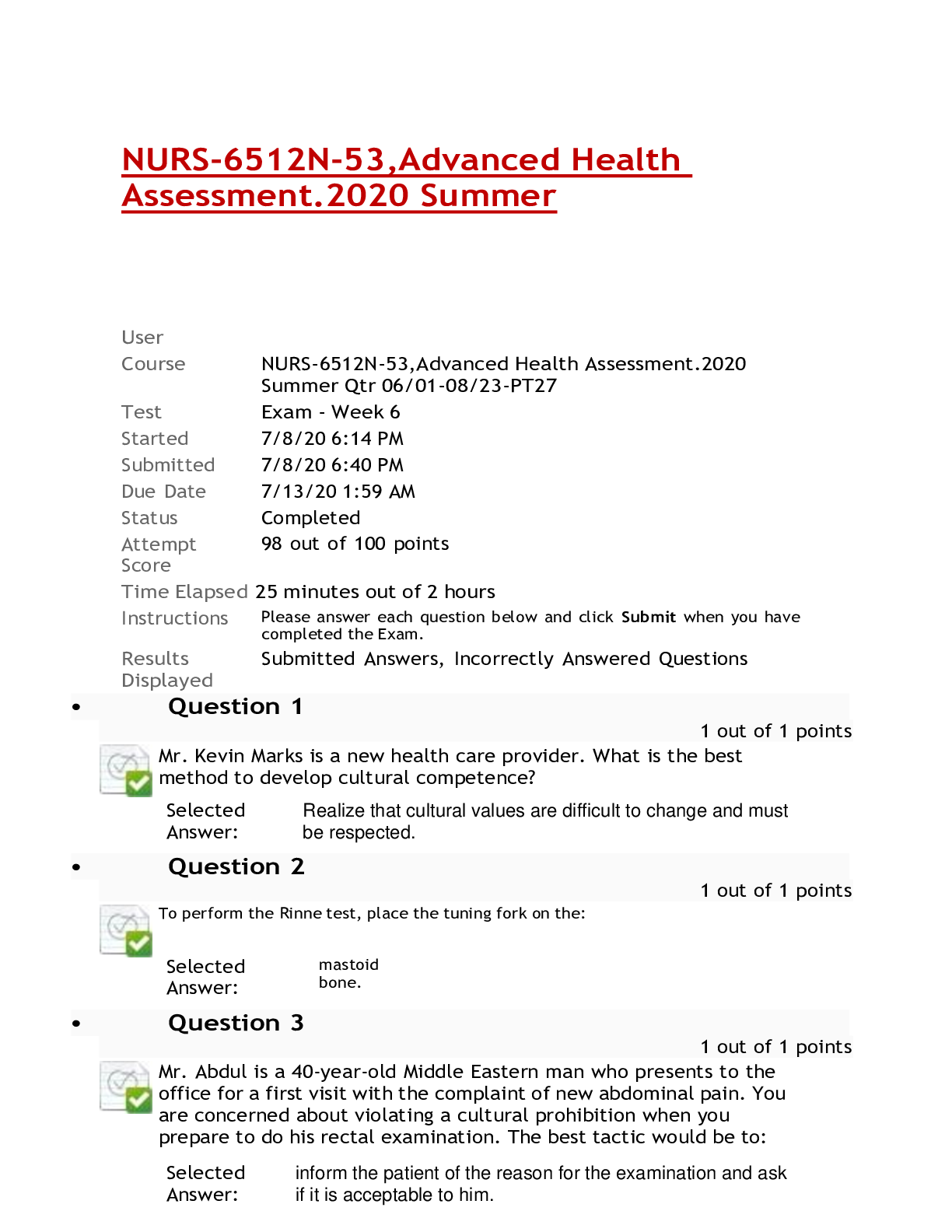
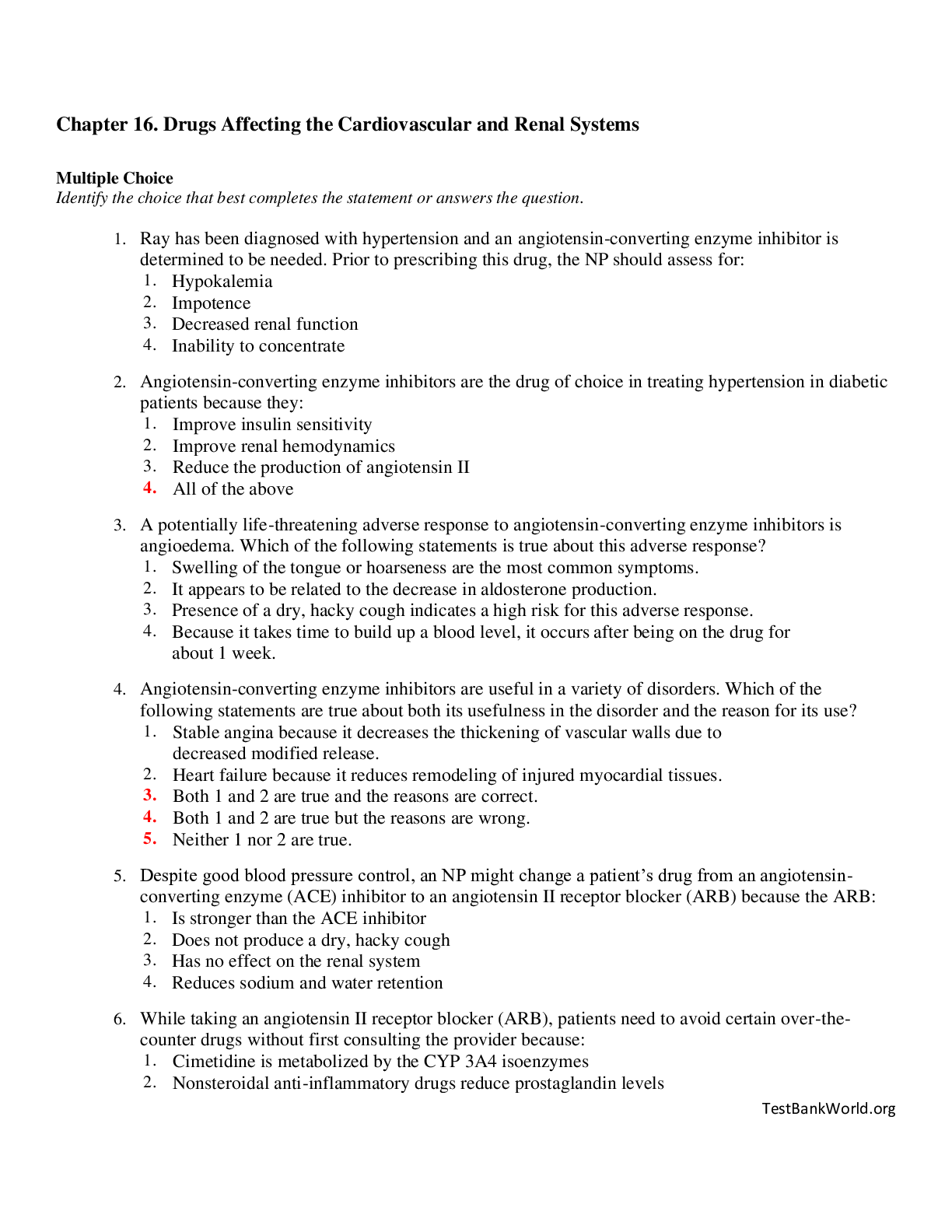
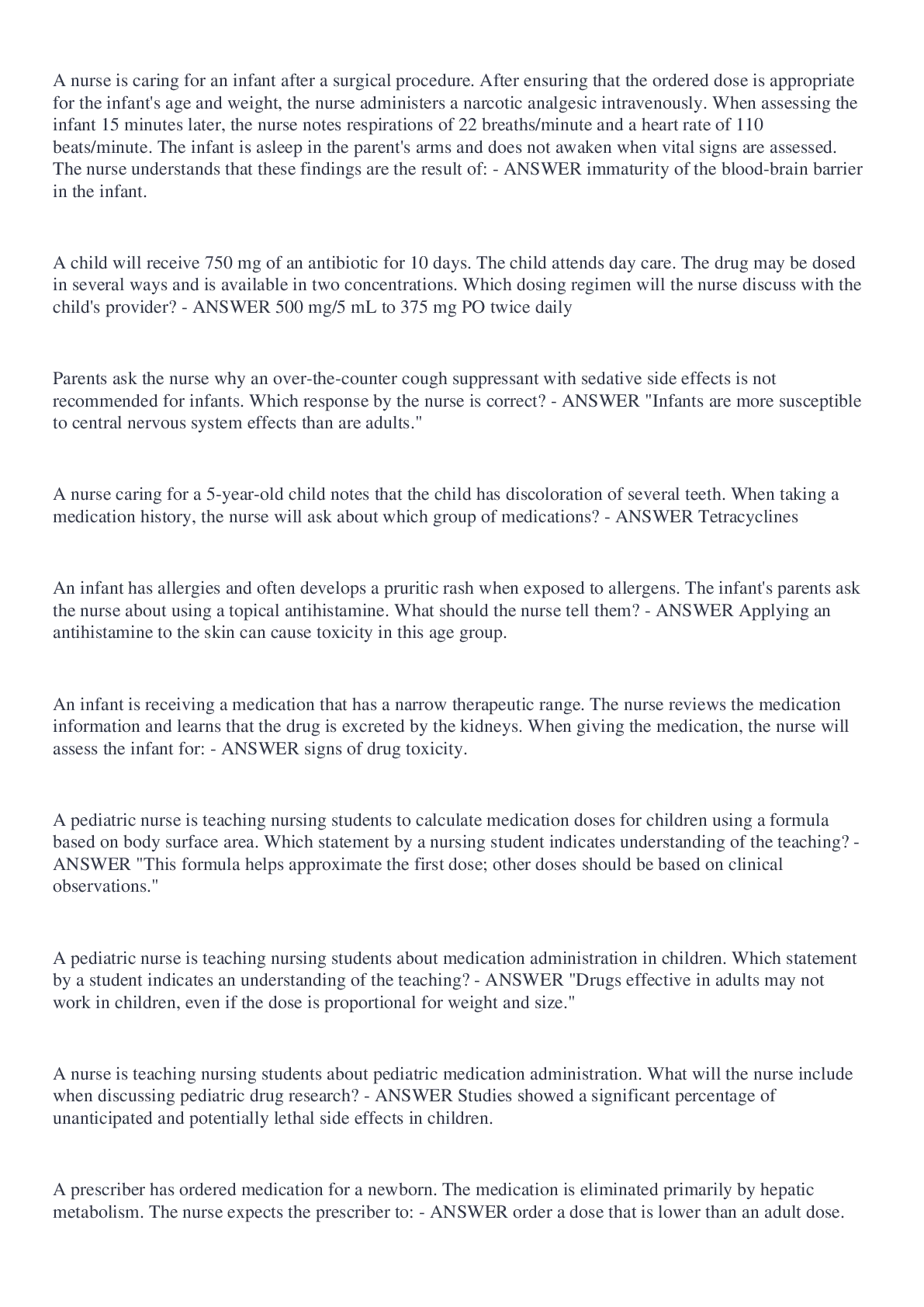

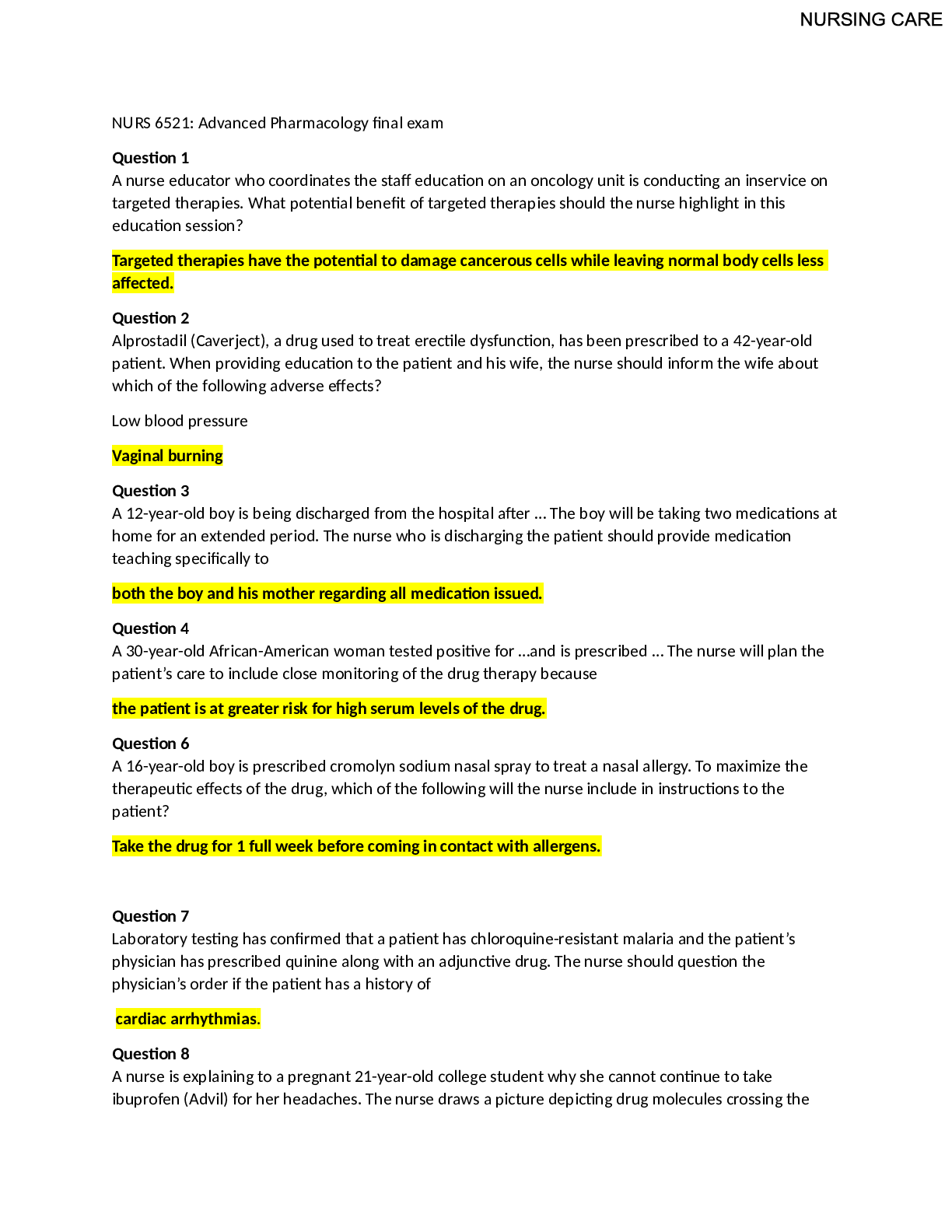
 (1).png)
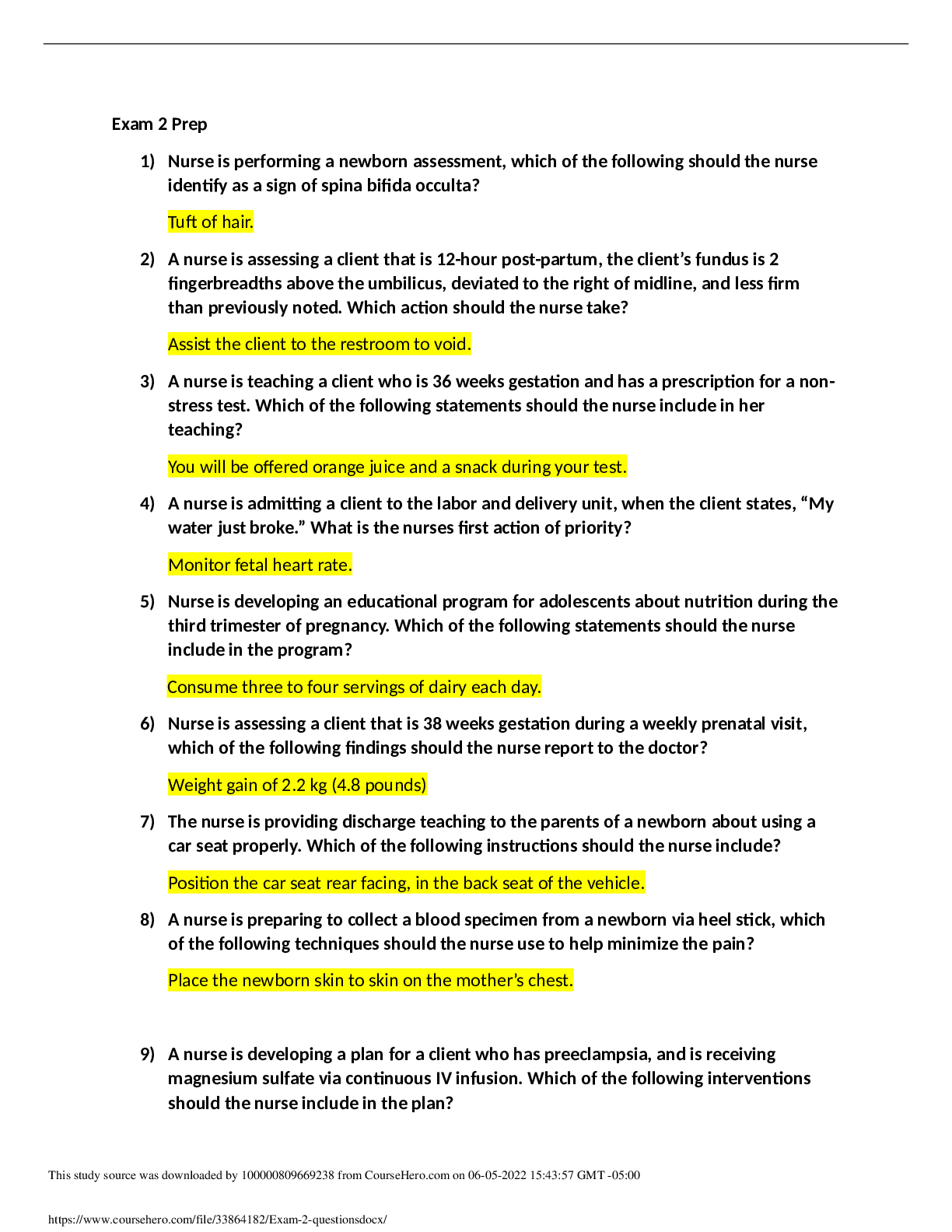

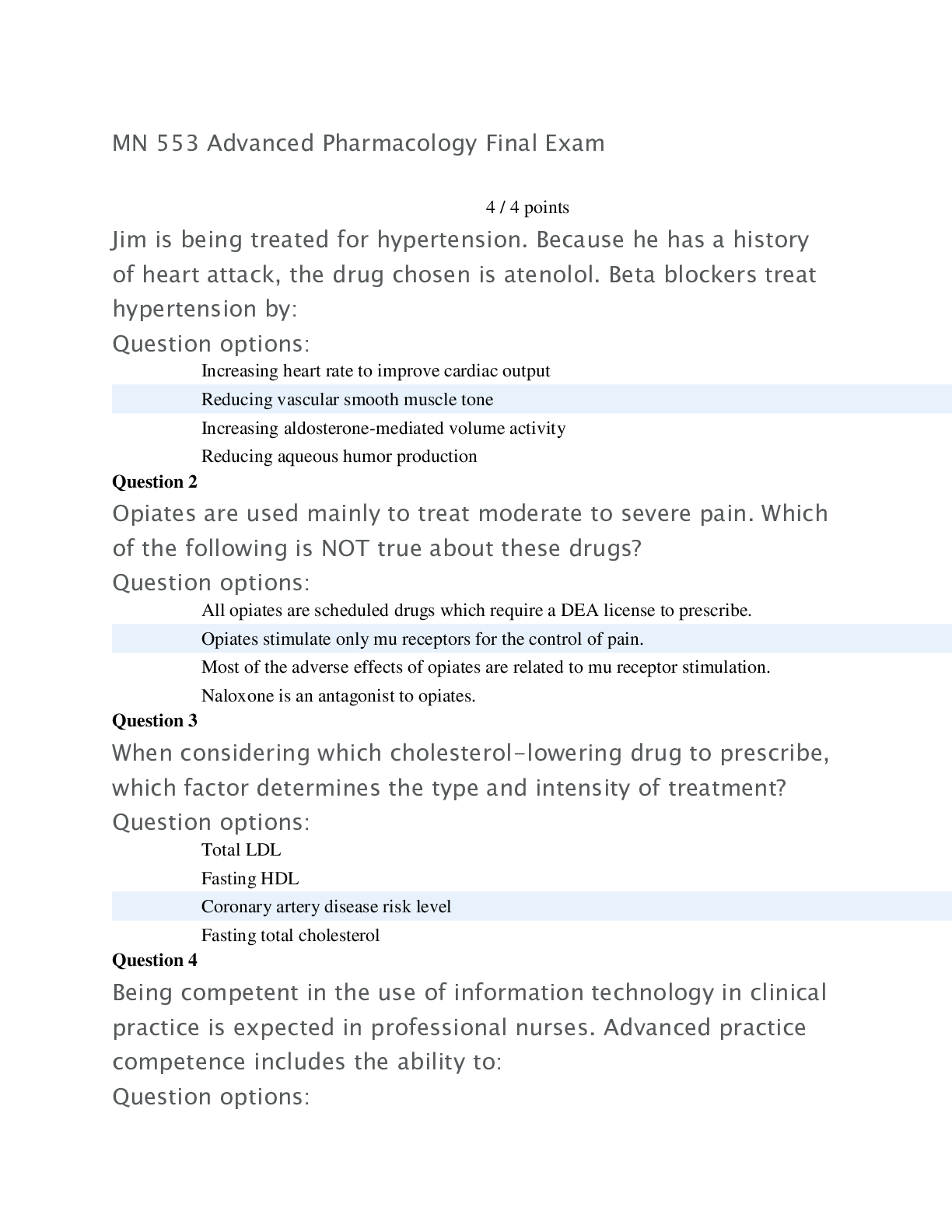


 Questions and Answers (latest Update), All Correct, Download to Score A.png)
